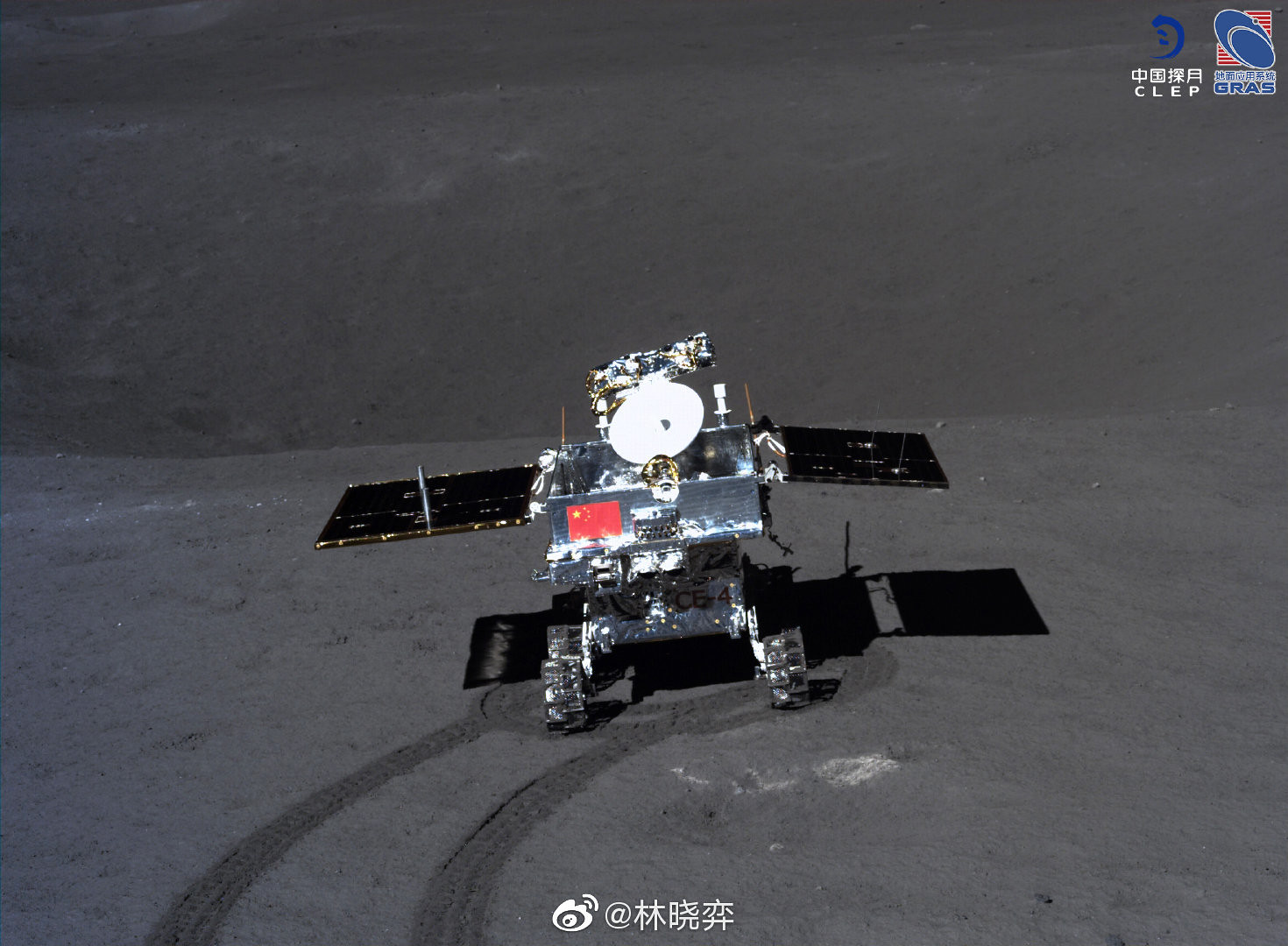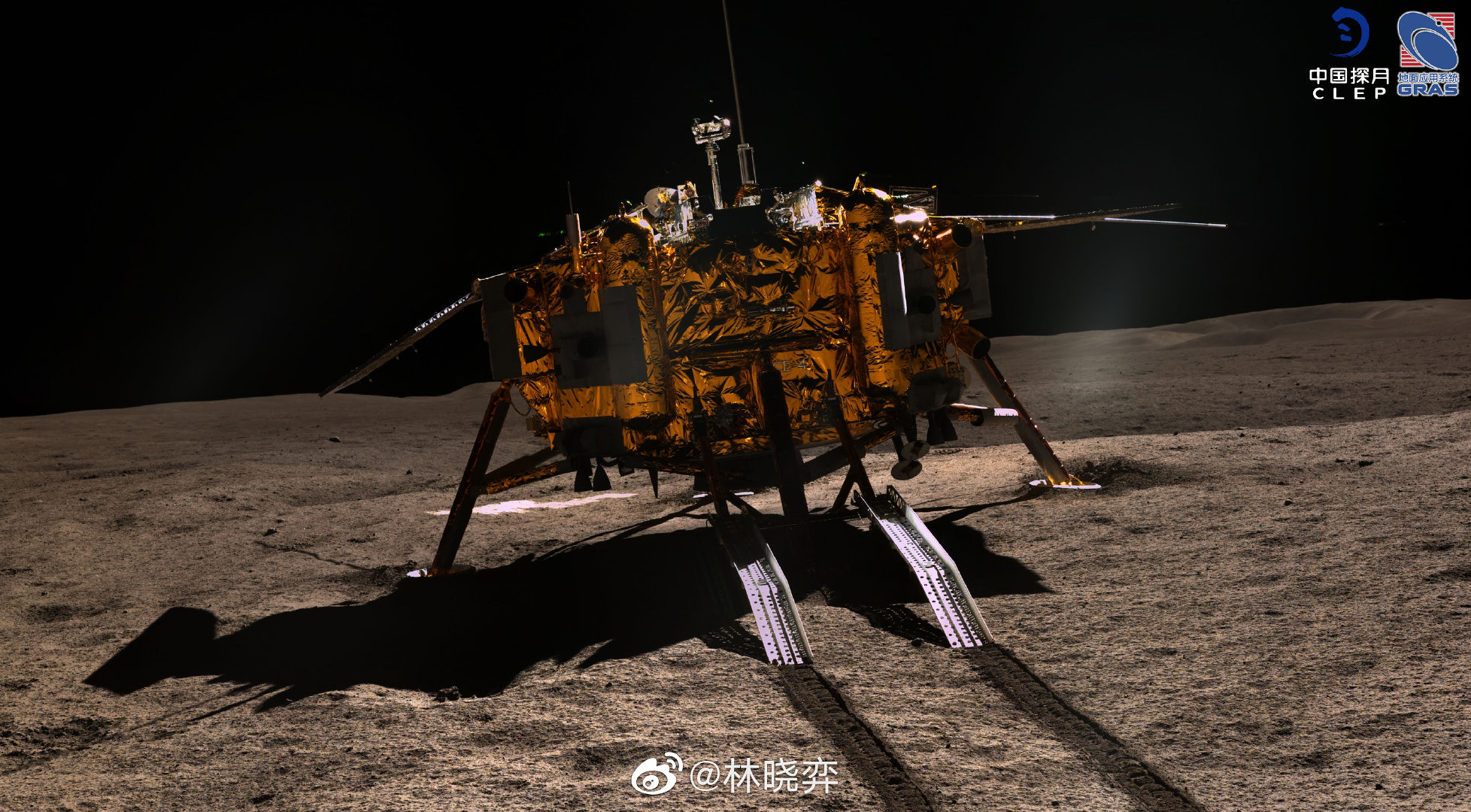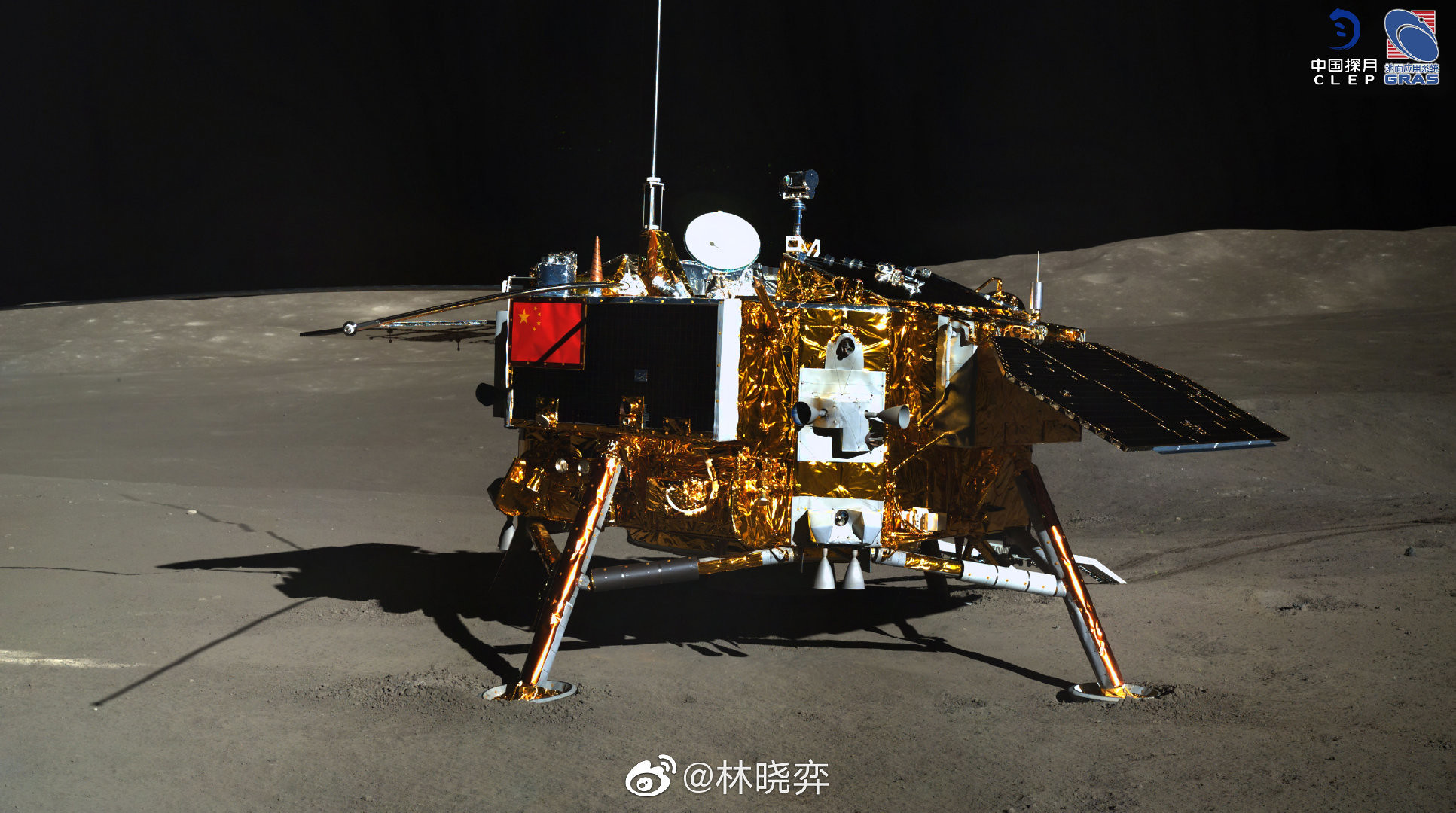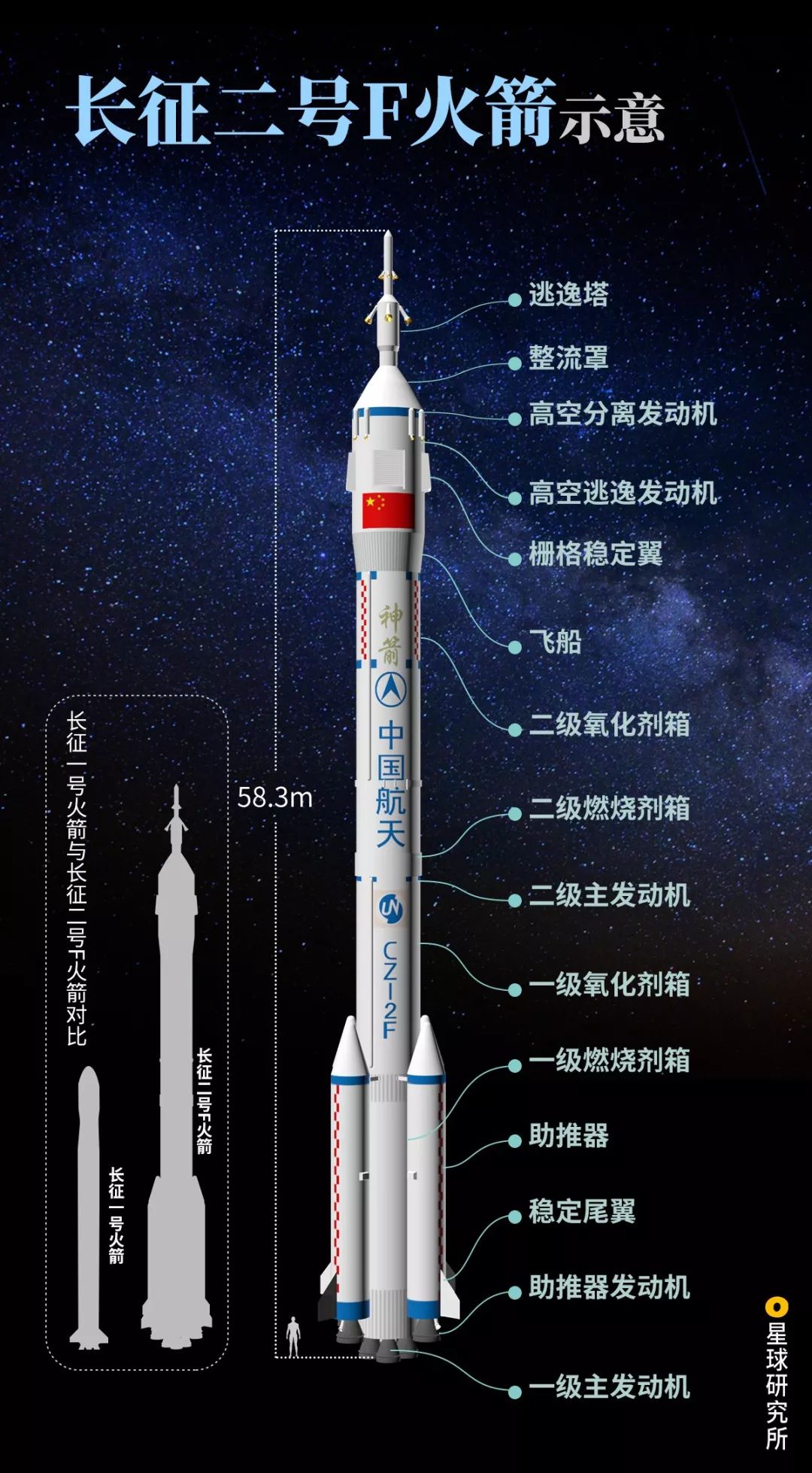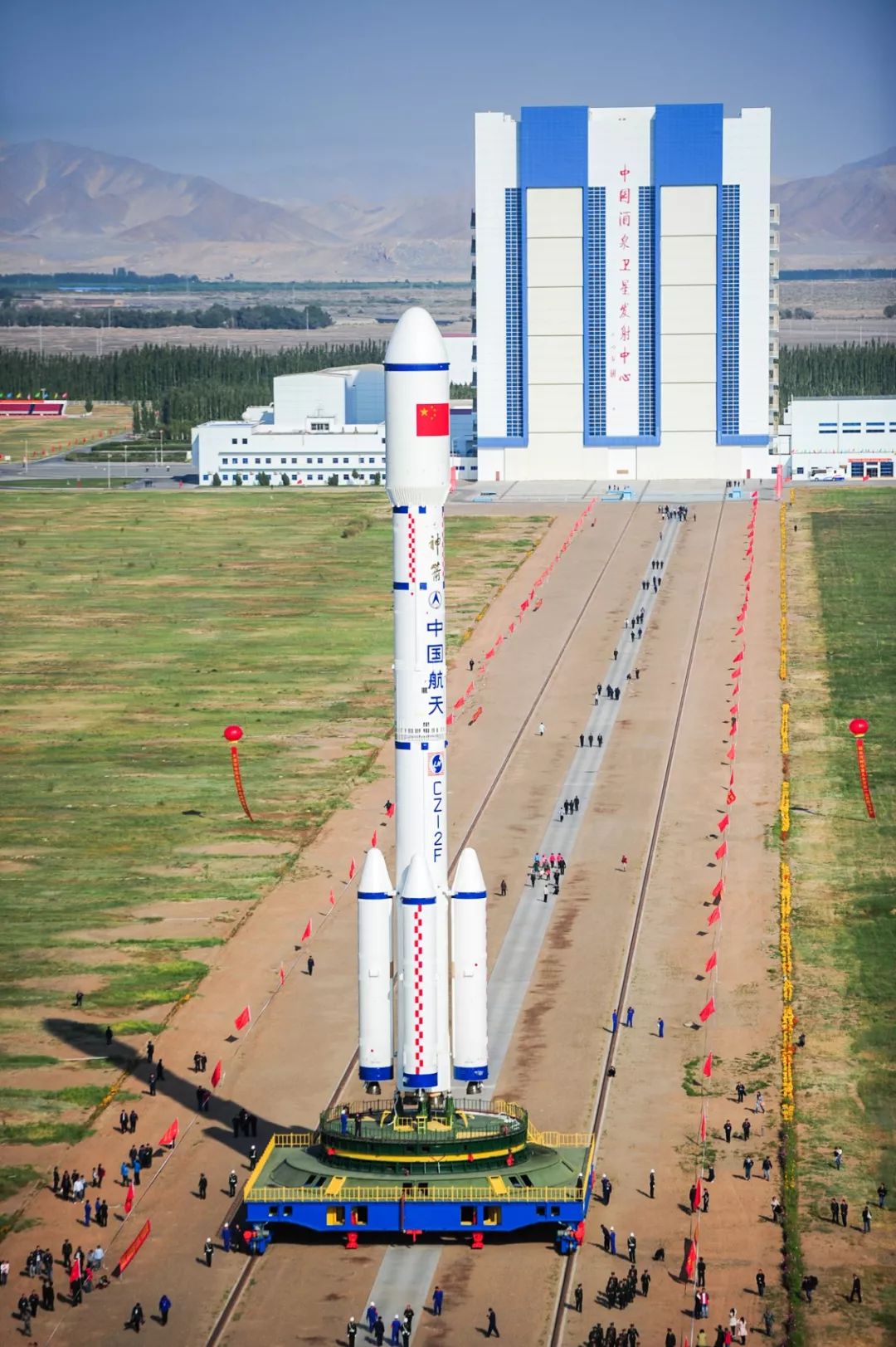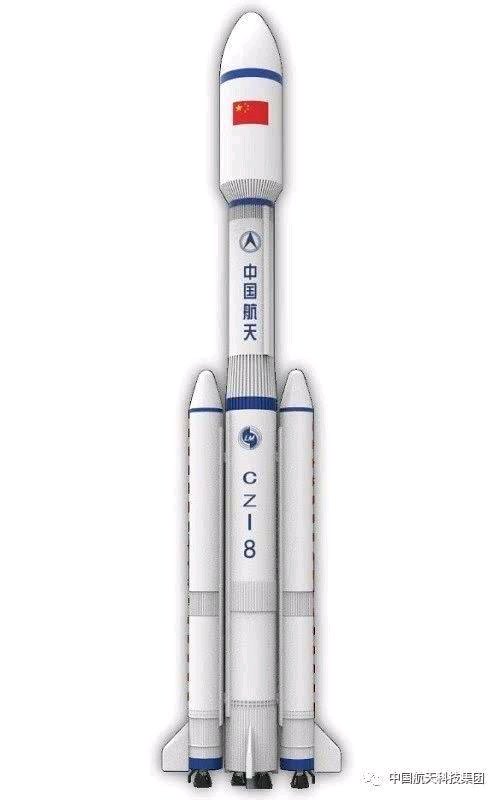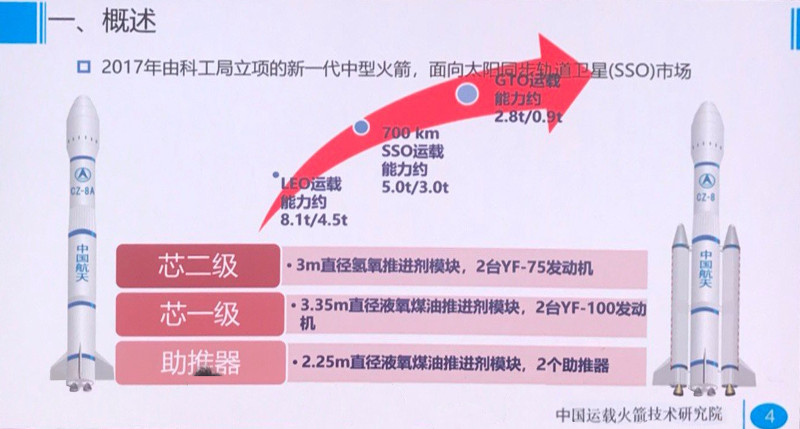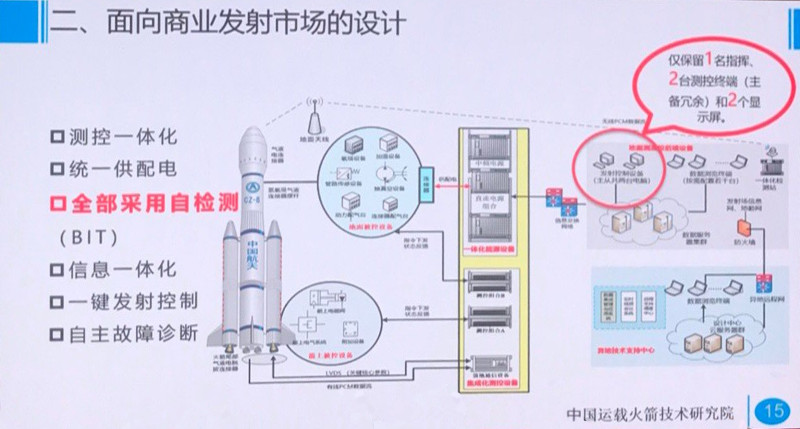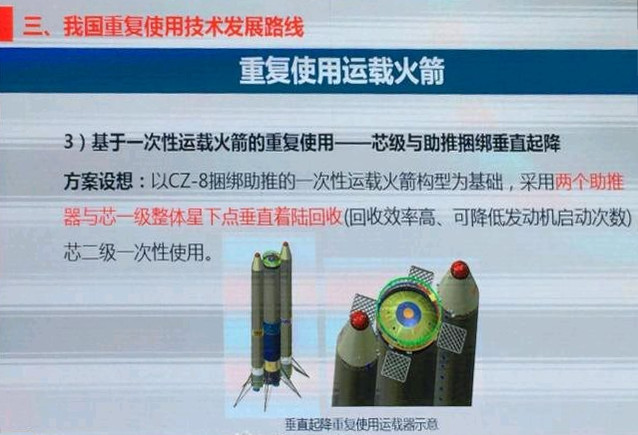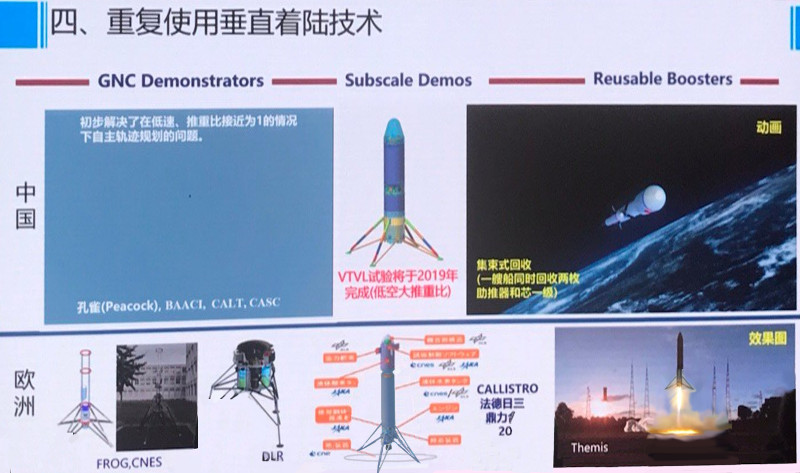You are using an out of date browser. It may not display this or other websites correctly.
You should upgrade or use an alternative browser.
You should upgrade or use an alternative browser.
China's Space Program News Thread
- Thread starter crazyinsane105
- Start date
- Status
- Not open for further replies.
Re-posting some lost high-resolution images of Lunar rover and lander.
Is this Yutu-1 or 2?
Quickie
Colonel
Is this Yutu-1 or 2?
Yutu-2. Very easy to tell as Yutu-1 and its lander touched down on very rocky terrain.
more....
Rendezvous of Shenzhou-8 and Tiangong-1.
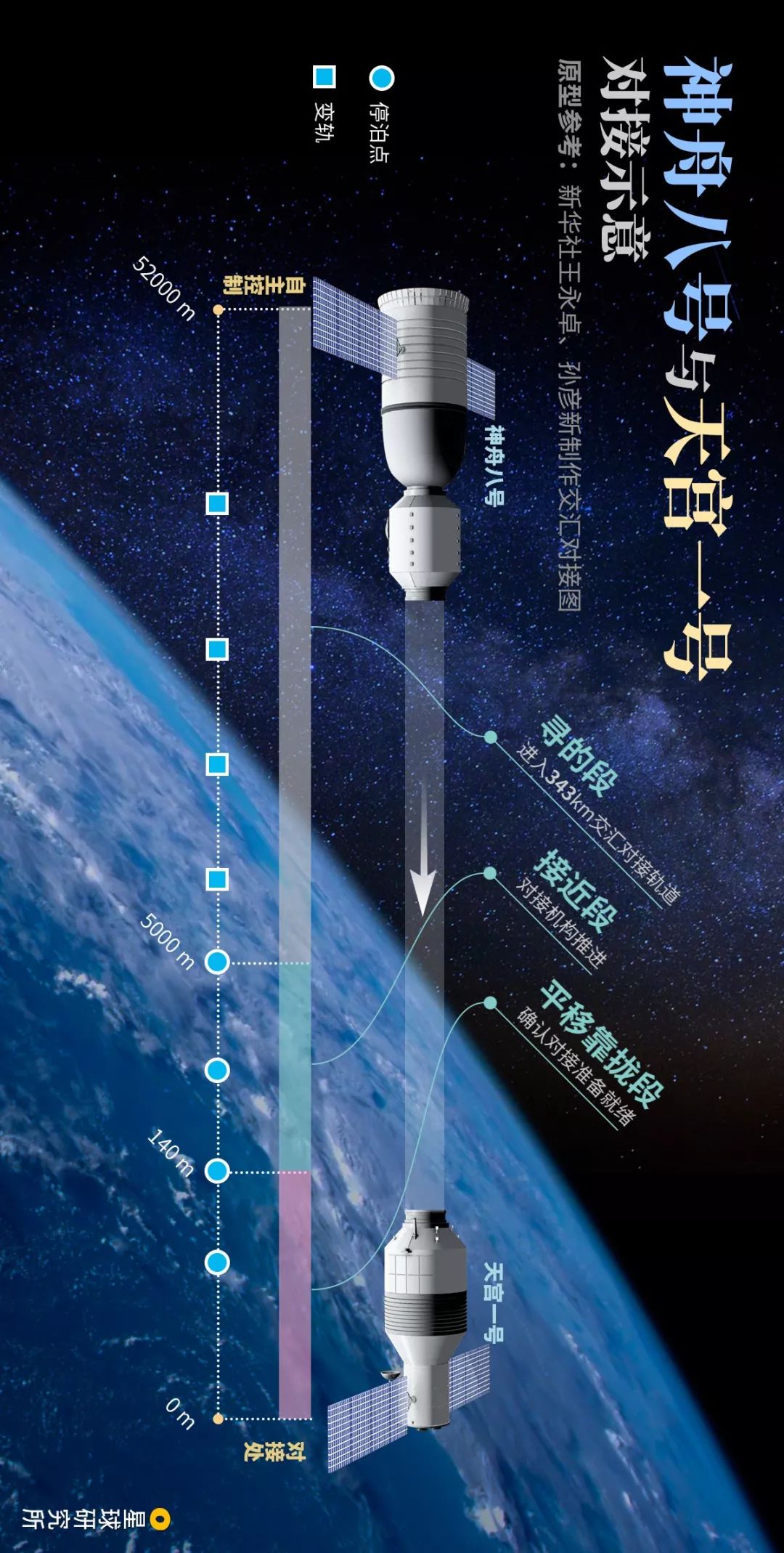
CZ-7 used to launch Tianzhou cargo spacecraft.
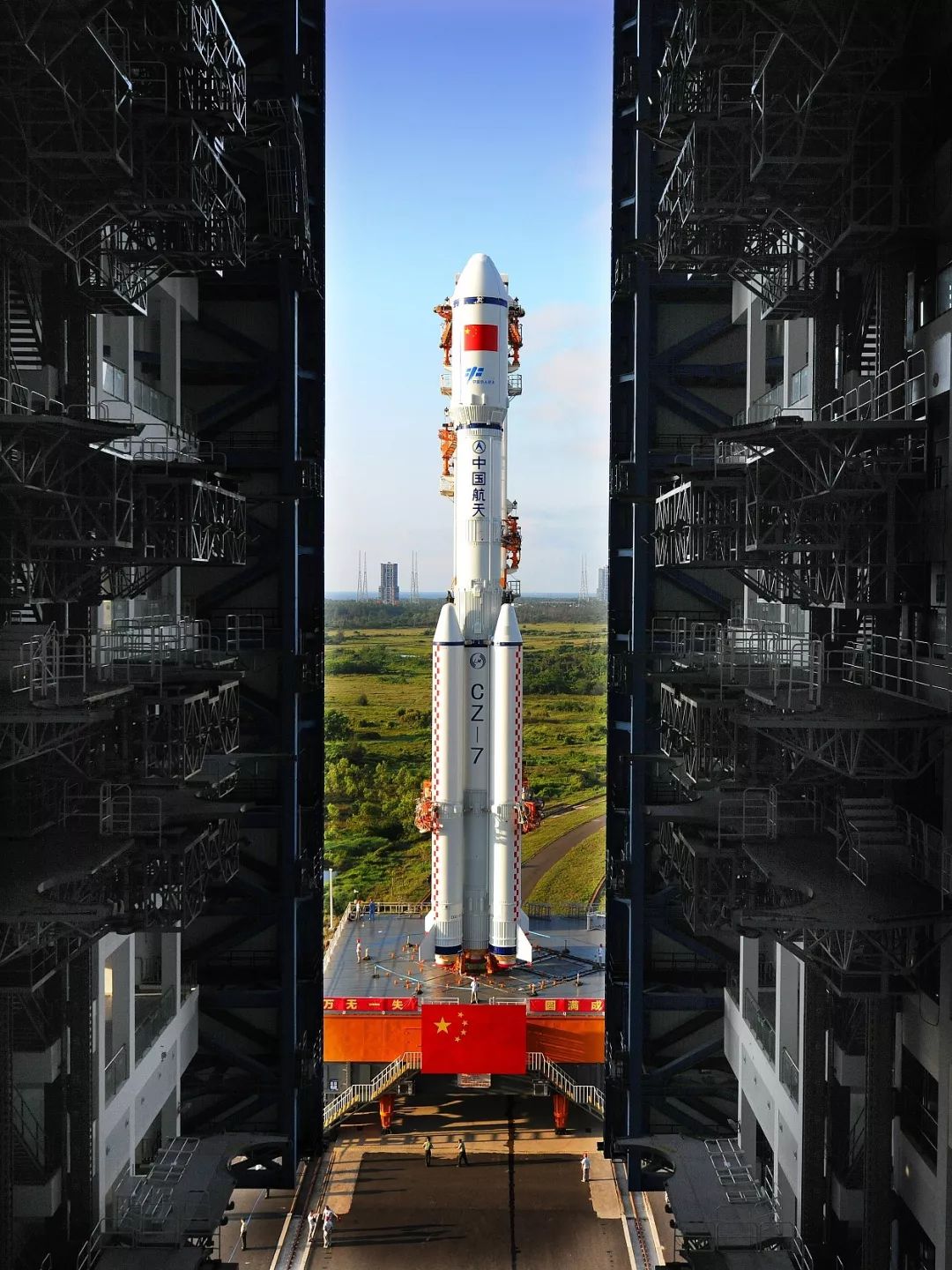
Shenzhou 1 to 11 and their flight duration in space.
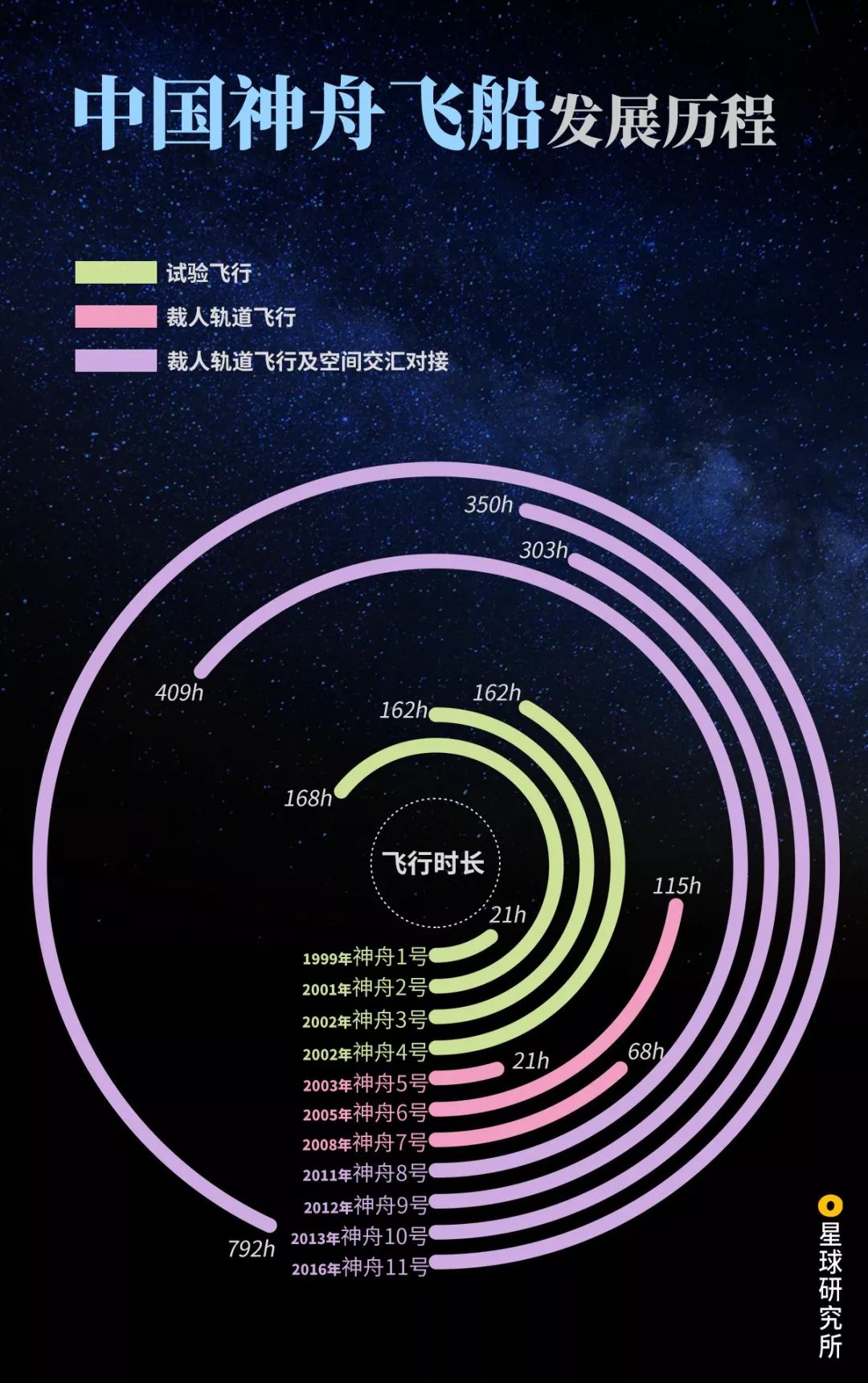
The various modules make up of the comming Tiangong space station.

Assembly of the coming China Space Station. The core module Tianhe will be launched in 2020. The space labs Wentian and Mengtian will be launched in 2022. Notice the spacecraft that docked to the space station is no longer the original Shenzhou, it's the next-gen spacecraft.

Rendezvous of Shenzhou-8 and Tiangong-1.

CZ-7 used to launch Tianzhou cargo spacecraft.

Shenzhou 1 to 11 and their flight duration in space.

The various modules make up of the comming Tiangong space station.

Assembly of the coming China Space Station. The core module Tianhe will be launched in 2020. The space labs Wentian and Mengtian will be launched in 2022. Notice the spacecraft that docked to the space station is no longer the original Shenzhou, it's the next-gen spacecraft.

China sent a new Earth observation satellite into space from the Taiyuan Satellite Launch Center in northern China's Shanxi Province at 7:52 a.m. Thursday (Beijing Time).
The satellite, Gaofen-12, was launched aboard a Long March-4C rocket and entered the planned orbit successfully. It was the 320th flight mission of the Long March carrier rocket series. As part of the country's high-definition earth observation project, the microwave remote sensing satellite is capable of providing photographs with a resolution of better than a meter. Gaofen-12 will be used in land surveys, urban planning, road network design and crop yield estimate, as well as disaster relief. It can also serve projects along the Belt and Road. (...all Photos: China News Service/ Zheng Taotao)
Quickie
Colonel
Looking at the number of launches in recent weeks, China should already be far ahead of other countries in terms of rocket launches. Probably more so than last year by the end of this year.
China now launches more rockets than anyone in the world
Through Sunday, the country has launched 27 orbital missions this year.
11/18/2019, 10:28 PM
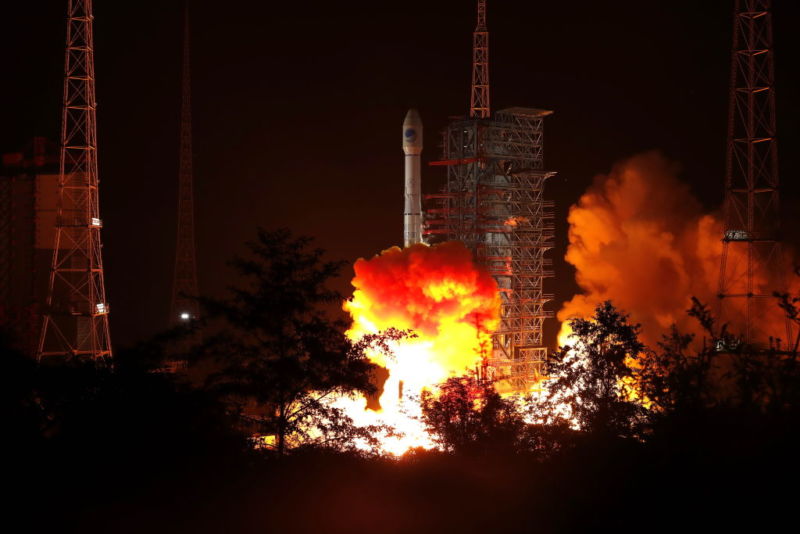
In recent weeks, China's space program has made news by revealing some of its long-term ambitions for spaceflight. These include establishing an Earth-Moon space economic zone by 2050, which, if successful, the country to begin to dictate the rules of behavior for future space exploration.
Some have questioned whether China, which has flown six human spaceflights in the last 16 years, can really build a large low-Earth space station, send taikonauts to the Moon, return samples from Mars, and more in the coming decade or two. But what seems clear is that the country's authoritarian government has long-term plans and is taking steps toward becoming a global leader in space exploration.
By one important metric—orbital launches—China has already reached this goal.
In 2018, the country of 35 orbital launches and ended up with 39 launch attempts. That year, the United States (29 flights) and Russia (20) trailed China, according to . It marked the first time China led the world in the number of successful orbital launches.
This year, China is set to pace the world again. Through Sunday, the country has launched 27 orbital missions, followed by Russia (19), and the United States (16). Although nearly a month and a half remain in this year, a maximum of six additional orbital launches are likely from the United States in 2019.
To be fair, China's space launch program has not been without hiccups. The country's space program is still trying to bring its back into service after a catastrophic failure during just its second mission, in July 2017. And the country had three failures in 2018 and 2019, compared to just one in the United States and Russia combined.
US launches down
The United States has taken a step back this year in part due to decreased activity by SpaceX. The company launched a record 21 missions last year but has so far launched 11 rockets in 2019. A flurry of missions remains possible in the next six weeks for the company, including a space station resupply mission in early December, a commercial satellite launch, and additional Starlink flights.
Another big factor has been a slow year for United Launch Alliance. The Colorado-based company has launched just two Delta IV-Medium rockets this year, one Delta IV-Heavy, and a single Atlas V mission. The company may launch Boeing's Starliner spacecraft before the end of 2019, giving the Atlas V rocket a second launch.
It is possible that Rocket Lab, which has flown its Electron rocket from New Zealand five times in 2019 and is planning at least one more mission before the end of the year, will have more launches than United Launch Alliance for the first time. Sometime next year, Rocket Lab should also begin to add to the US tally for orbital launches as it opens a new facility at Wallops Island, Virginia.
China now launches more rockets than anyone in the world
Through Sunday, the country has launched 27 orbital missions this year.
11/18/2019, 10:28 PM

In recent weeks, China's space program has made news by revealing some of its long-term ambitions for spaceflight. These include establishing an Earth-Moon space economic zone by 2050, which, if successful, the country to begin to dictate the rules of behavior for future space exploration.
Some have questioned whether China, which has flown six human spaceflights in the last 16 years, can really build a large low-Earth space station, send taikonauts to the Moon, return samples from Mars, and more in the coming decade or two. But what seems clear is that the country's authoritarian government has long-term plans and is taking steps toward becoming a global leader in space exploration.
By one important metric—orbital launches—China has already reached this goal.
In 2018, the country of 35 orbital launches and ended up with 39 launch attempts. That year, the United States (29 flights) and Russia (20) trailed China, according to . It marked the first time China led the world in the number of successful orbital launches.
This year, China is set to pace the world again. Through Sunday, the country has launched 27 orbital missions, followed by Russia (19), and the United States (16). Although nearly a month and a half remain in this year, a maximum of six additional orbital launches are likely from the United States in 2019.
To be fair, China's space launch program has not been without hiccups. The country's space program is still trying to bring its back into service after a catastrophic failure during just its second mission, in July 2017. And the country had three failures in 2018 and 2019, compared to just one in the United States and Russia combined.
US launches down
The United States has taken a step back this year in part due to decreased activity by SpaceX. The company launched a record 21 missions last year but has so far launched 11 rockets in 2019. A flurry of missions remains possible in the next six weeks for the company, including a space station resupply mission in early December, a commercial satellite launch, and additional Starlink flights.
Another big factor has been a slow year for United Launch Alliance. The Colorado-based company has launched just two Delta IV-Medium rockets this year, one Delta IV-Heavy, and a single Atlas V mission. The company may launch Boeing's Starliner spacecraft before the end of 2019, giving the Atlas V rocket a second launch.
It is possible that Rocket Lab, which has flown its Electron rocket from New Zealand five times in 2019 and is planning at least one more mission before the end of the year, will have more launches than United Launch Alliance for the first time. Sometime next year, Rocket Lab should also begin to add to the US tally for orbital launches as it opens a new facility at Wallops Island, Virginia.
That's what I call a threat.These include establishing an Earth-Moon space economic zone by 2050
- Status
- Not open for further replies.

